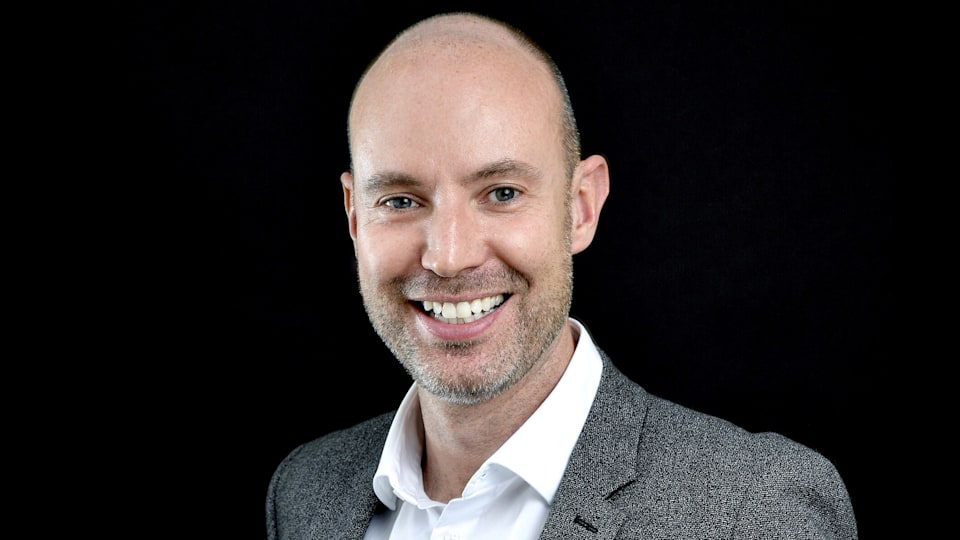Meeting the expectations of the next generation of OCOGs
In conversation with Gavin McAlpine, Olympic Games Delivery Associate Director

Gavin McAlpine has worked on the Games since Vancouver 2010 and in 2017 joined the IOC, where he heads up the Games Delivery Office (GDO). Gavin has been involved in a wide range of learning programmes for past and future OCOGs, especially in the area of operational readiness. Prior to joining the IOC, he worked as a management consultant, supporting organisations in successfully implementing large-scale business transformations. On the IOC’s Games Insights and Learning Programme, Gavin and the GDO team collaborate closely with the IOC’s IKL team and with the FAs in the IOC’s Games Management team. We sat down with him to get his insights on the evolution of learning within the IOC and the OCOGs, including the potential of the new Games Learning Platform (GLP). During the interview, Gavin highlighted the increasing importance of supporting OCOGs through effective learning and understanding their local contexts, and the need to support effective learning in a compelling way for the modern learner.
How does the GDO collaborate with the IOC’s IKL team on insights and learning?
The GDO is the central hub of information around each Games edition, and we work closely with all the executives and central Programme Management teams in each of the OCOGs. Therefore, we try to gain a good understanding of their local contexts. This can have a big impact in determining the different learning styles and preferences of each OCOG. We know where they are at in the delivery lifecycle of the Games and can help define their learning needs accordingly. In this context needs refer to topics, but also their preferences in terms of how and when they would like to access specific content. That’s where the IKL team comes in as a service provider. We validate the OCOGs’ learning needs with the FAs in the IOC Games Management team and then work with IKL, together with Deloitte, to design and develop customised learning content and experiences. Often we are also involved in the delivery of these activities. For instance, in January we conducted some very specific leadership training sessions with the Paris 2024 executive team, as they now move into the readiness phase. We are also involved in designing some aspects of the new Games Learning Platform (GLP) currently being rolled out, for instance regarding learning pathways which structure content according to the stage of the Games lifecycle, role and FA.
Speaking of…what are you most looking forward to on the new Games Learning Platform?
The development of the GLP is a big step forward which provides an essential foundation to build on over the years ahead. It’s a modern, digital learning platform which is also used by other leading organisations throughout the world and provides for a simple, seamless and intuitive user experience. It’s easy to navigate and provides a way to explore content in a natural way and according to individual preferences. This is important as the GLP will initially provide more than 100,000 different content items (e.g. Games guides, previous OCOGs’ deliverables, video interviews, etc.) covering all stages of an OCOG’s lifecycle. In the past, learners had to work hard to search for and access this content from different platforms – now it is available through one “window”.
During the last few years, we have observed that people often prefer bite-sized content in compelling formats. Content is king, and we can learn certain things from the successes of platforms like Instagram and TikTok, in terms of how people want to engage with content. We have also seen the increased availability of data, which provides very helpful information on how and when people consume and share certain content. That helps to constantly customise what’s on offer.
Over time, the GLP will aim to take these developments and trends into account and respond to the needs of OCOGs and the Games Management team. The launch of the new platform allows us to curate and promote new relevant content such as the new Games Delivery Playbook, which provides a first simple overview of how all stakeholders and areas work together to deliver the Games. It’s a good example of how we want to present important information in a new, compelling way, easy to consume, before going into technical details, which is important at a later stage. Today, everyone wants to access information quickly and on their terms, and the GLP provides the means to respond to this trend. It has also incorporated certain social media features, providing the opportunity to share content, participate in polls and so on.
More broadly, how do you see the future of learning working with the OCOGs, and what’s your vision for the next few years?
For us, it’s all about supporting OCOGs in effective learning, as part of a high-performing organisation – it’s one of our top priorities as it relates to Games delivery. We need to adjust to a more complex environment and global developments. For instance, the growing importance of sustainability has pushed virtual learning opportunities. For the Olympic Games Tokyo 2020, we implemented for the first time VR training for Venue Managers, preparing them for their role at Games time, and there are huge opportunities for planning and learning through advances in technology such as digital twins.
The big step forward in technology is just the start. It’s now important that we work together with the IKL and the Games Management teams so that everybody understands how the investment being made in the new platform, and the programme at large, can help support OCOGs.